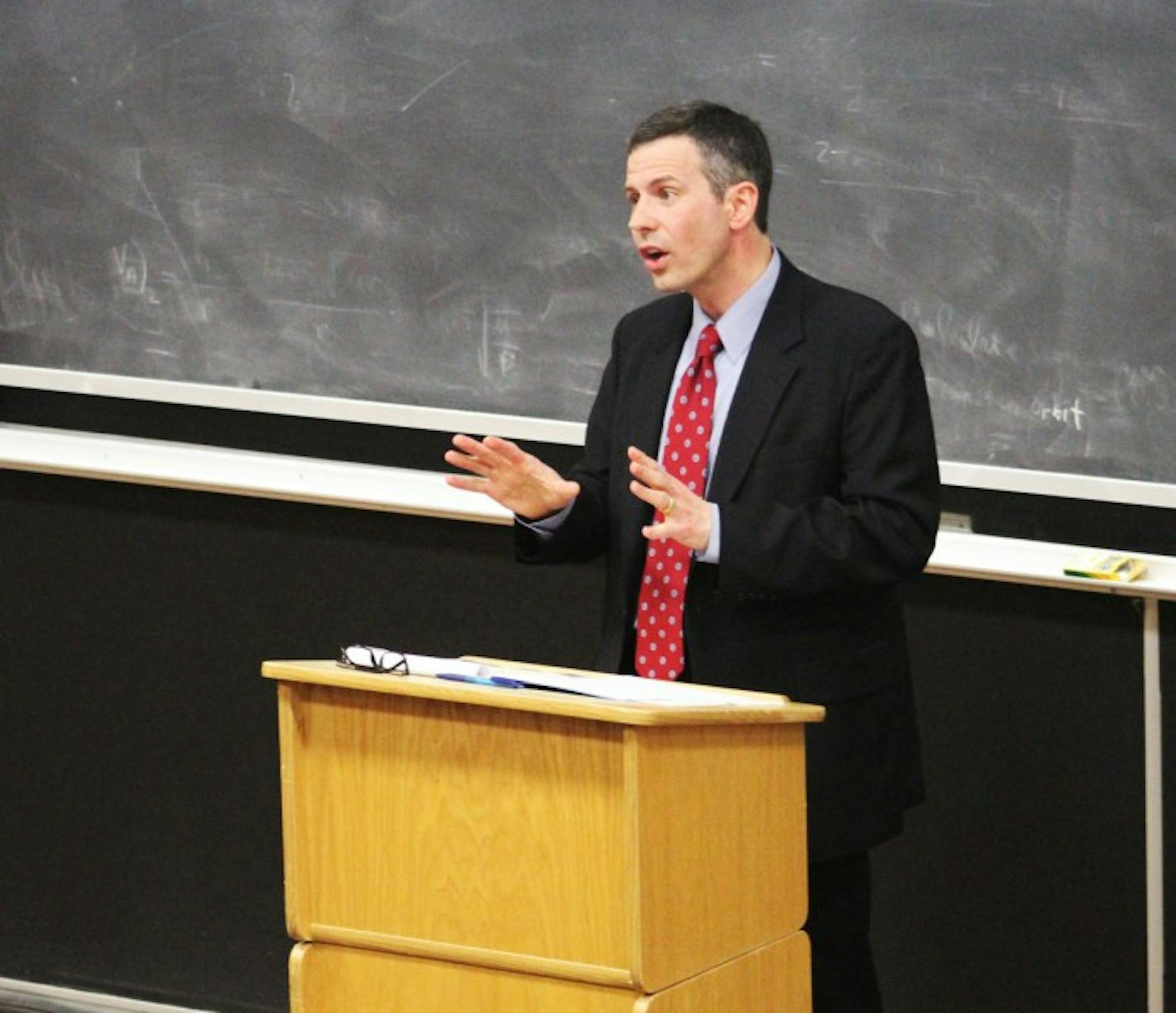In the midst of the fight in Washington over the nomination of Judge Merrick Garland to the Supreme Court following the death of Justice Antonin Scalia, the Young Americans for Freedom hosted the O’Toole Professor of Constitutional Law at Notre Dame, Anthony J. Bellia Jr., to discuss the legacy of Justice Scalia, a man who Bellia called the “the second most influential conservative of the twentieth century behind Ronald Reagan.”
Bellia said there were major differences between the Federalists, who supported the implementation of a strong court, and the Anti-Federalists who feared the power of an unelected body with such great sway.
“Justice Scalia, in a sense, was the modern day torchbearer of the argument that courts should have a self imposed limited role in the way that they decide cases,” Bellia said.
“Justice Scalia’s primary legacy is that he was a proponent, of when it came to the constitution, giving effect to its original meaning, how is the constitution understood as a public matter at the time it was adopted, when it came to statutes, he was in favor of textualism,” Bellia said.
Bellia said Scalia’s approach approach towards interpreting the constitution, followed a doctrine called “original public meaning.”
Scalia believed, according to Bellia, that “what is relevant is not the intent of those who drafted it, it's the meaning that the public would’ve understood it to have when it was ratified.”
“As he applied this approach throughout the years, it led him to many results that were not particularly conservative or liberal,” Bellia said. “There are many opinions he wrote enforcing constitutional rights in a way that reached quite liberal outcomes.”
Bellia said Scalia believed in textualism.
“When it came to interpreting statutes, not the constitution but acts that are passed by congress, you have a similar debate, but not exactly the same one, Justice Scalia was a textualist, he believed that federal judges should try, in interpreting federal statutes, to give them a meaning that reflected the natural or ordinary meaning of the textual language,” Bellia said.
Bellia said the vacant bench on the court left by Scalia’s death could have significant effects on U.S. law.
“There are a whole series of cases dealing with congressional power, they are big cases and they were all decided 5-4, with four justices in dissent all saying that if we get the votes, were going to overturn this. On many issues the court is 4-4, if Judge Garland is confirmed ... those cases I predict will all flip,” Bellia said.













